If you have diabetes and are unsure about eating fruits, it’s important to know that some fruits can be good for you. While it’s important to be mindful of the amount of sugar you consume, some fruits can help you manage your blood sugar and stay healthy. With the right choices, you can enjoy the nutrients from fruits without affecting your health.
In this blog post, we’ll explore the best fruits for diabetes and how they can be incorporated into a balanced diet.
Fruits for diabetic patients
Diabetes is not just about how much sugar you eat, but also about the choices you make in your daily life. People with diabetes must watch their blood sugar levels by avoiding sugary foods. However, many everyday foods contain sugar, making it complicated to manage diabetes. Some fruits can help people with diabetes control their condition.
Fruits are full of vitamins, minerals, and fiber, making them a healthy choice for most people. But for those with diabetes, some fruits are better to eat than others to avoid blood sugar spikes. By including fruits in their diet, people with diabetes can improve their overall health and lower the risk of complications. It’s important to consider the glycemic index of fruits when choosing which ones are best for managing diabetes.
1. Berries are a delicious snack that can help fight off diseases due to their antioxidants
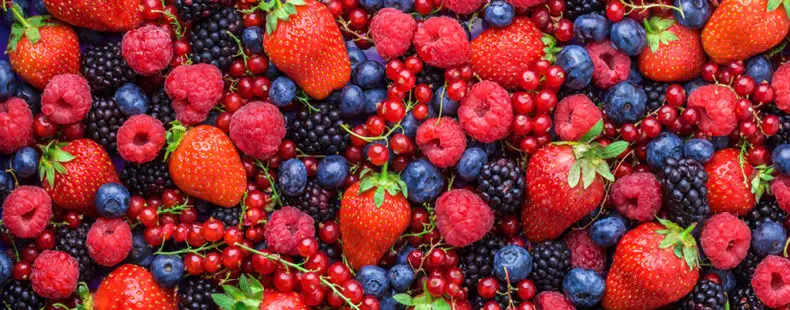
Berries are small, juicy fruits that come in different colors like red, blue, black, purple, and pink. They are packed with disease-fighting antioxidants and essential minerals. Some popular berries are strawberries, blueberries, raspberries, blackberries, cranberries, and goji berries. Each type of berry has its unique shape, color, and size, and offers different health benefits.
Berries are known for being good for your health because they contain a lot of antioxidants. Antioxidants are natural substances that help protect your body from oxidative stress, which can lead to chronic diseases like cancer, heart disease, and Alzheimer’s. Berries are rich in anthocyanins, a type of antioxidant that gives them their bright colors. Research has shown that anthocyanins can help reduce inflammation, improve heart health, and slow down age-related cognitive decline.
2. Tart cherries help reduce inflammation
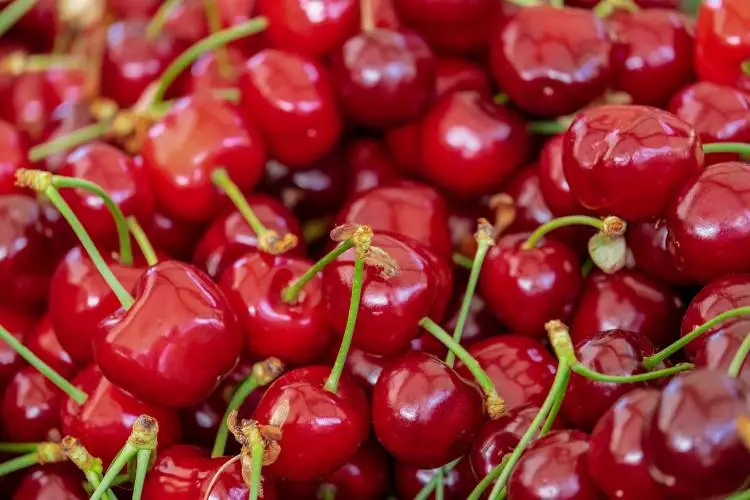
Sour cherries, also known as tart cherries, have been shown to have health benefits because they can reduce inflammation in the body. Inflammation happens when the body tries to heal itself after an injury or infection, but if it lasts too long, it can cause problems like diabetes and arthritis. Tart cherries contain antioxidants and anti-inflammatory compounds like anthocyanins, quercetin, and catechins. These substances can help reduce inflammation by stopping the production of chemicals that cause inflammation. Studies suggest that drinking sour cherry juice or using cherry powder could help decrease inflammation and lessen muscle soreness after exercise. For example, in one study, marathon runners who drank sour cherry juice recovered faster than those who didn’t.
3. Apricots are tasty fruits that are packed with fiber

Apricots are delicious fruits that have many health benefits and are great to include in your diet. They are high in fiber, which helps keep your digestive system healthy and prevents constipation. Apricots also contain important nutrients like vitamins A and C, which help protect your cells from damage. They are a good source of potassium, which helps regulate blood pressure. You can enjoy apricots in different ways – fresh, dried, or cooked. Fresh apricots can be added to salads, yogurt, or cereal, while dried apricots make a quick and easy snack. You can also use them in baking pies, tarts, and cobblers.
4. Apples make a convenient and healthy snack, rich in fiber and Vitamin C
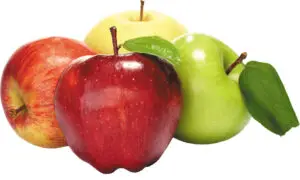
Apples are a popular fruit worldwide because they are easy to eat, filling, and easy to take with you as a snack. They are also rich in fiber and vitamin C, which adds to their appeal. Apples can be enjoyed in many ways – raw, cooked, or baked – and come in different sizes, shapes, and flavors. Besides being tasty, apples offer many health benefits. They are a great source of fiber, which helps with digestion and lowering cholesterol. A medium-sized apple has about 16% of the fiber you need each day. Apples are also low in calories, with just 95 in a medium-sized one. Studies show that the antioxidants in apples can help reduce the risk of diseases like cancer and heart disease by protecting cells from damage. The polyphenols in apples can also help reduce inflammation in the body. Apples are high in vitamin C too, with one medium-sized apple giving you about 14% of your daily intake. Vitamin C is important for a strong immune system and helps with tissue repair.
5. Oranges Are a Juicy, Refreshing Source of Vitamin C
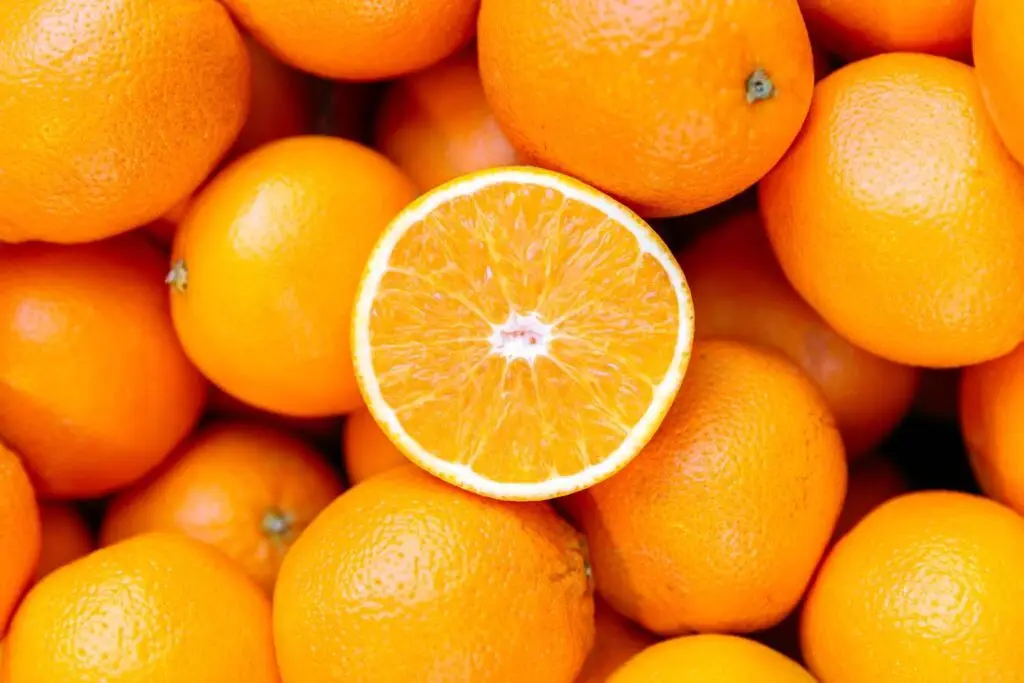
Oranges are well-known and loved worldwide for their delicious taste and health benefits. They are packed with vitamin C, which boosts the immune system and helps fight off illnesses. Oranges also contain other important nutrients like folate, potassium, and thiamin, which are crucial for overall health and reducing the risk of chronic diseases. Oranges are versatile and can be enjoyed on their own, added to dishes like salads or smoothies, or used in juices and baked goods. Whether you enjoy their tangy flavor or want to boost your health, oranges are a great choice for a tasty and nutritious snack.
6. Choose Pears for a Convenient Snack, Packed with Fiber
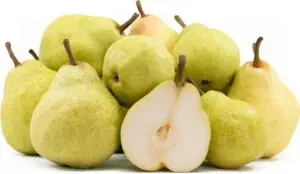
When looking for a healthy and easy snack, pears are a great choice. They taste good, are easy to eat, and have lots of fiber. One medium pear has about 6 grams of fiber, which is a good amount for your daily needs. The fiber in pears helps keep your digestion in good shape and prevents constipation. Pears are also full of vitamins C and K, which are important for your skin, immune system, and bones. Pears can be used in many ways in cooking. They can be eaten on their own, with spreads like peanut butter or cheese, or cooked in dishes like salads, pies, and crumbles. Pears are versatile and offer a tasty option for a healthy snack.
7. Zesty Green Kiwis Bring Potassium, Fiber, and Vitamin C
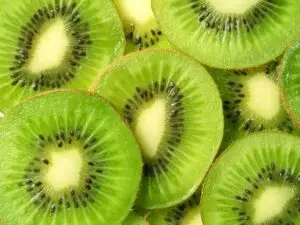
Kiwis are popular and healthy fruits known for their delicious taste and bright green color. Originally from China and introduced to New Zealand in the early 20th century, kiwis are now sold worldwide in supermarkets. They are packed with potassium, fiber, and vitamin C, which can help with blood pressure, digestion, cholesterol levels, and immune system function. Eating a medium-sized kiwi can give you almost 71% of the daily recommended amount of vitamin C.
Conclusion
In conclusion, while managing diabetes can be challenging, making wise choices in diet and lifestyle can greatly improve the overall health and well-being of individuals with this condition. By selecting fruits with a lower glycemic index and incorporating them into a balanced diet, people with diabetes can effectively control their blood sugar levels and reduce the risk of complications. It is essential to remain mindful of the impact of food choices on blood sugar and to make informed decisions to support a healthy lifestyle.

